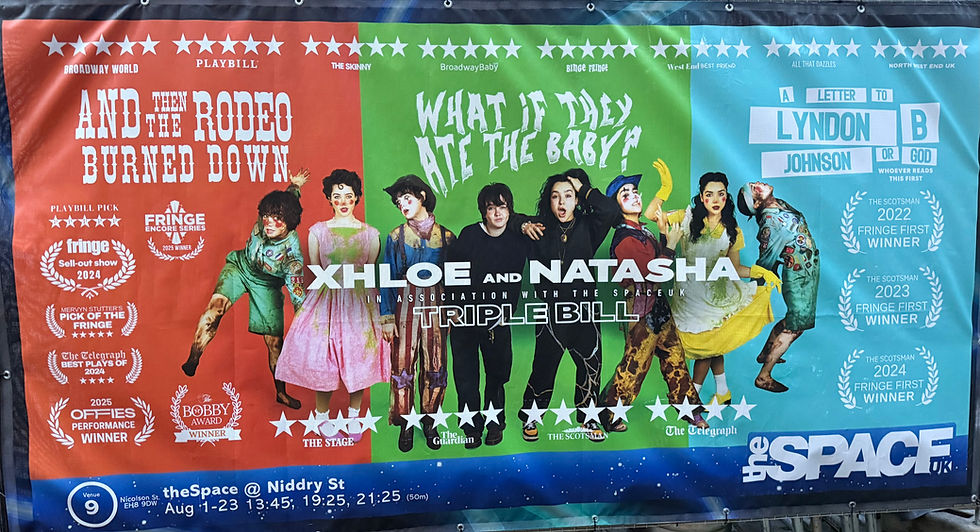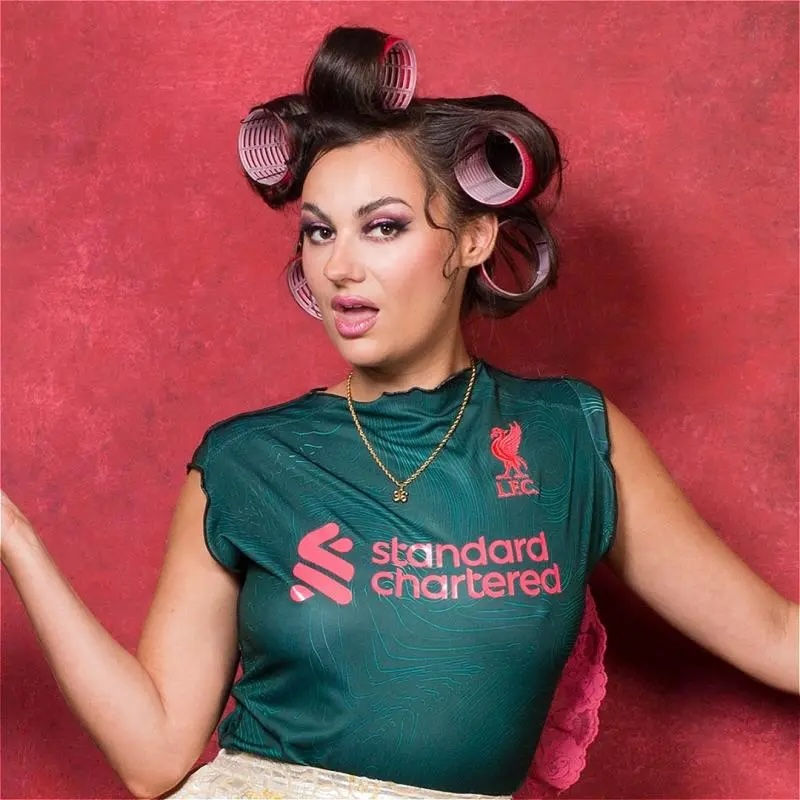Review: Ann Chun: Asian Divorce at Greenside at Riddles Court - Ed Fringe
- Aug 18, 2022
- 3 min read
Reviewed by Natalie Low
In a tucked away corner in Riddle Court is an intimate space for an audience of 20. Which might be a claustrophobic nightmare for some, but for Ann Chun: Asian Divorce, it’s the perfect set-up. This one-woman show is a telling of Ann Chun’s parents, who live in Thailand, and how their relationship has affected her dating life, causing her to become a ho. Or so she would like to see herself as becoming. An opening act from Non Kuramoto, she effectively eases the audience into this space. She is funny, and relaxed, drawing stories from her time coming to Edinburgh Fringe and comparing the Scottish to the native New Yorkers where she hails from. A promising stand-up comedian, I look forward to her future work. She then introduces Chun, who starts her act quick and without hesitation. She pulls out a vibrator, talking about how an ex-boyfriend presented it to her out of fear of not being able to please her in bed. How attractive! She yells, being presented with a man who knows his strengths and weaknesses. The relationship alas goes awry, ending with the man wanted the vibrator back – “it’s actually my mother’s”. Chun keeps the vibrator.
The act continues down the road of her self-discovery into becoming a ho, attributing it to her strong-headed mother, who lives in Thailand, and calls her with complains about her husband only a typical Asian mother really has the ability to. It gets to a point where Ann returns back to Thailand from NYC to discover that her mother has bought the house next to her father, and they now are living separately. They aren’t legally divorced, but they are, in Chun’s eyes, “Asian divorced”.
The set is simple – a black chair on a black stage, with Chun using an occasional prop (like the vibrator) or her mobile phone. The projector is used almost lecture style occasionally as she uses images to provide more context to her story. The lighting is also fairly simple, barely changing through the show.
For this reviewer, the whole act is relatable, funny, yet heartbreaking. Chun successfully discusses about typical Asian standards, easing an audience into expectations and habits that perhaps a white person (farang in Thai, she teaches us) might not understand. The act is balanced with Ann’s narration, along with projections of her parent’s conversations with her translated to English along with voiceovers in Thai. It provides another dimension to the story, as you’re able to hear other voices, creating a chance for Chun to showcase her acting side by reacting to the conversations she’s having. The voiceovers also come in when she’s talking to ex-boyfriends. And as an audience, you’re able to create an image of just how they look like, with brief description provided by Chun.
There were moments where you could feel slightly awkwardness coming from Chun – be it nervousness, or others, she weaves in and out of a sense of ease through the act. The whole story is succinct, yet descriptive enough, and Chun’s self-deprecating humour is effective as she acknowledges that perhaps in her attempts to becoming a ho, is slightly tainted by the fact that she still unexpectedly found herself in long-term relationships. Relationships that may or not be the best for her. When she explains about how her parents’ relationship is nothing but complicated, and how that has affected how she lives her life, you can’t help but tear up a little from understanding and thinking how much your output on life is affected by your own upbringing. Ultimately, she concludes that no matter what, she still has the freedom and ability to make her own decisions that are best for her.
After spending about an hour learning about Chun, you root for her through her relationship woes, and feel genuinely happy for her, like you would for a friend. She effectively has drawn this audience into her story. Overall, this was an enjoyable treat, and I look forward to Chun’s future acts.

Image Supplied




